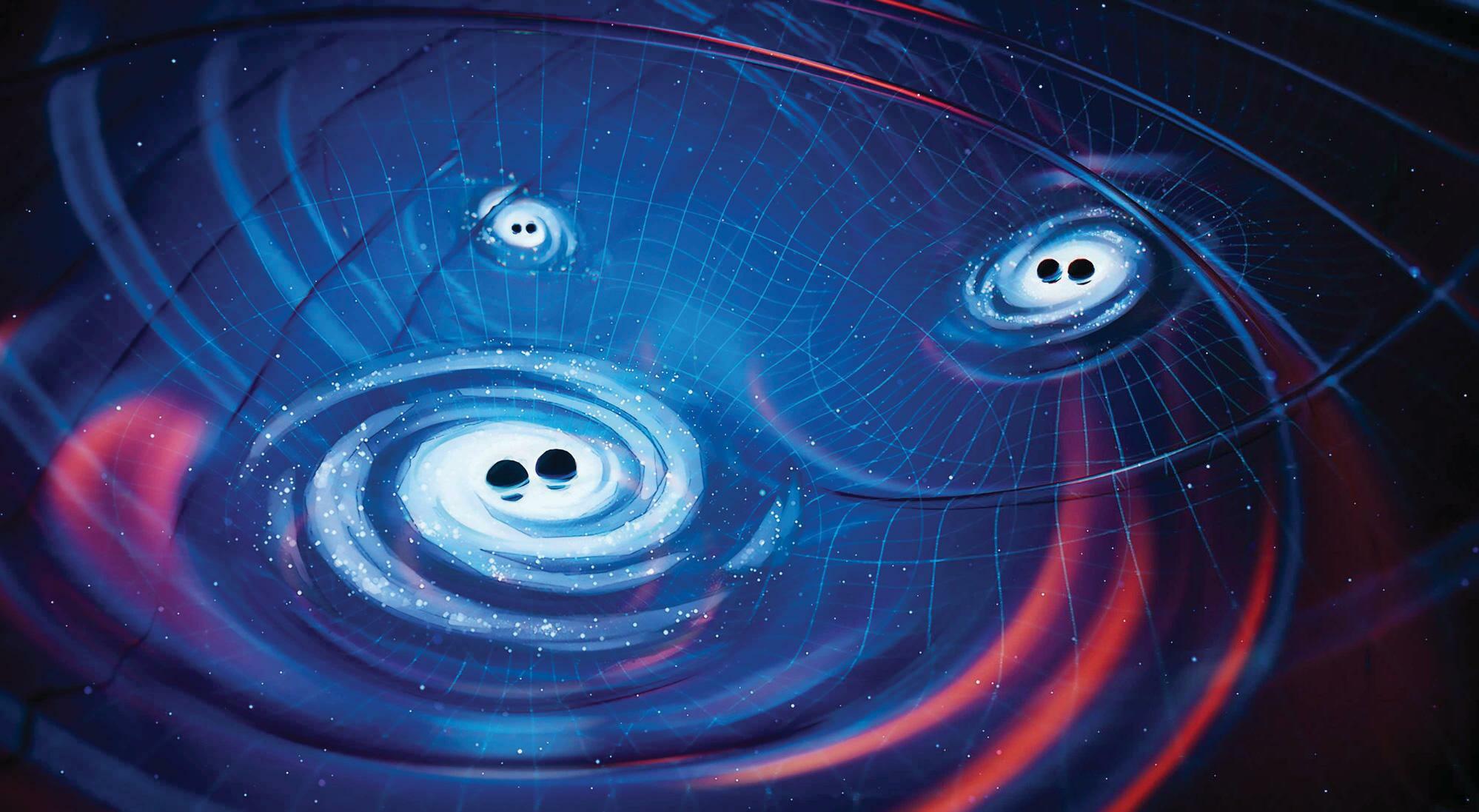Prøve GULL - Gratis
COSMOLOGY: GRAVITATIONAL RIPPLES COULD HELP CRACK THE UNIVERSE'S SECRETS
BBC Science Focus
|August 2023
New findings provide evidence of a background hum’ produced by low-frequency gravitational waves rippling across spacetime
-

An international team of scientists has found evidence that suggests Earth, and indeed everything in the Universe, is afloat on a constantly rippling sea of low-frequency gravitational waves.
The findings, announced in a series of papers published in The Astrophysical Journal Letters were made by the North American Nanohertz Observatory for Gravitational Waves (NANOGrav), a team of researchers from more than 50 institutions in the US and abroad. Together, the papers provide the first evidence of a gravitational wave background - essentially, a soup of spacetime distortions that pervade the entire Universe.
"This is the first-ever evidence for the gravitational wave background. We've opened a new window of observation on the Universe," said NANOGrav scientist Dr Chiara Mingarelli.
Gravity waves were first predicted by Albert Einstein in 1916, but their existence wasn't confirmed until 2015 when they were first detected by the Laser Interferometer Gravitational-wave Observatory (LIGO).
Denne historien er fra August 2023-utgaven av BBC Science Focus.
Abonner på Magzter GOLD for å få tilgang til tusenvis av kuraterte premiumhistorier og over 9000 magasiner og aviser.
Allerede abonnent? Logg på
FLERE HISTORIER FRA BBC Science Focus

BBC Science Focus
HOW UNLIKELY IS OUR UNIVERSE?
Our understanding of the Universe has revealed that its existence, and indeed our own, relies on a particular set of rules.
1 mins
December 2025

BBC Science Focus
DOES YOUR NAME AFFECT YOUR PERSONALITY?
Research is revealing that nominative determinism isn't as easy to dismiss as you might think
5 mins
December 2025

BBC Science Focus
HOW DIFFICULT WOULD IT BE TO FLY THROUGH THE ASTEROID BELT?
In the 1980 film Star Wars: The Empire Strikes Back, Han Solo and friends try to escape pursuing imperial forces by flying through an asteroid field. Droid C-3PO remarks, \"the odds of successfully navigating an asteroid field is approximately 3,720 to 1\". The scene depicts a chaotic, dense field of rocks swirling and spinning through space. This scenario has been played out many times in the cinema.
1 min
December 2025

BBC Science Focus
HOW CAN I BE MORE PERSUASIVE?
Most of us like to think we're rational people. If someone shows us evidence that we're wrong, we'll change our minds, right? Well, not necessarily, because it's not always that simple. Being wrong feels uncomfortable and sometimes threatening. That's why changing someone's mind is often much harder than it seems.
2 mins
December 2025

BBC Science Focus
This bizarre optical illusion could teach us how animals think
By seeing which animals fall for a classic visual trick, scientists are uncovering how different brains make sense of the world
1 mins
December 2025

BBC Science Focus
LIFE AT THE PARTY
The secret that keeps the superagers so sprightly could be socialising
3 mins
December 2025

BBC Science Focus
AIN'T NO MOUNTAIN HIGH ENOUGH
Could an exoskeleton help you scale every peak with ease? Ezzy Pearson straps on some cyborg enhancements to find out
5 mins
December 2025

BBC Science Focus
A slice across the sky
The green flash slicing through the skies in this shot is a fireball.
1 min
December 2025

BBC Science Focus
TB is surging. Should we be worried?
Cases of the world's deadliest infection are climbing in the UK and US. Why is tuberculosis returning and how do we fight back?
4 mins
December 2025

BBC Science Focus
I survived the worst fire in the history of space exploration and had to keep it a secret
Astronaut Jerry Linenger opens up about one of the worst accidents in space, and the cover-up that followed
1 mins
December 2025
Translate
Change font size
